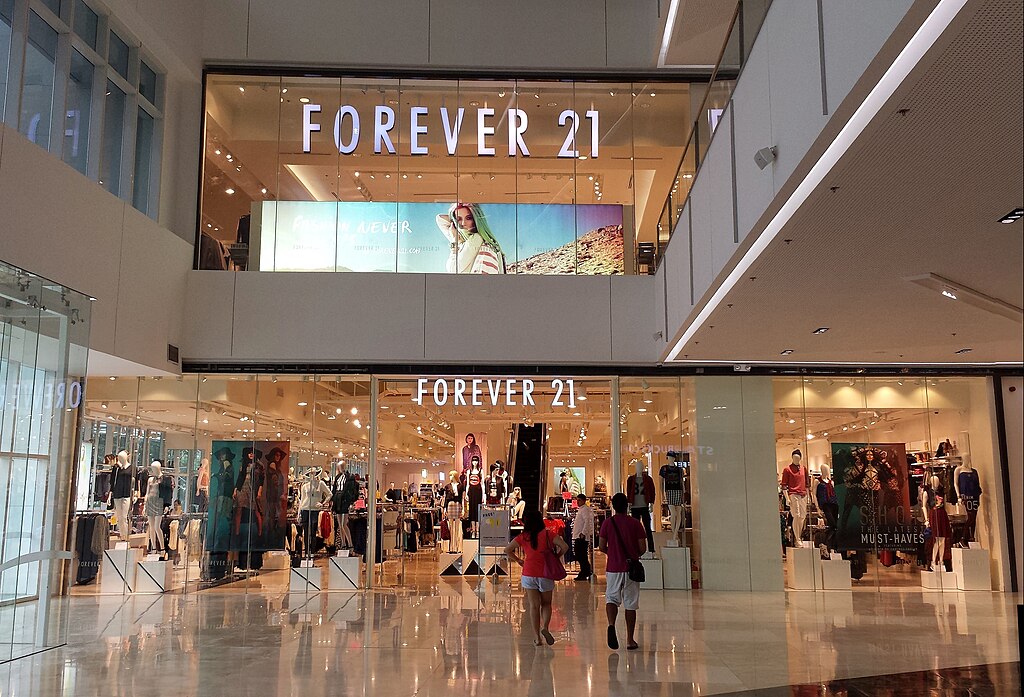The American retailer Forever 21, once a household name in fast fashion, has filed for bankruptcy for the second time in six years. The company will be conducting closeout sales at all of its 354 locations in the United States and will continue to honor gift cards through the first thirty days of bankruptcy, while international stores will remain unaffected.
“We have been unable to find a sustainable path forward, given competition from foreign fast fashion companies,” said Brad Sell, chief financial officer of F21 OpCo, “as well as rising costs, economic challenges impacting our core customers, and evolving consumer trends.” After first going into bankruptcy in 2019, Forever 21 was revived in 2020 by a consortium of shopping center operators, including the likes of Brookfield Place, as well as Authentic Brands Group, a company known for resuscitating declining brands like Brooks Brothers and Nine West.
One of the major factors contributing to the American retailer’s crippling difficulties has to do with the “de minimis” exemption on imports, which allows shipments valued at less than $800 to pass through customs with minimal hindrance or import taxes. This means that Chinese competitors like Temu and Shein have benefited from a significant leg up over Forever 21 in its own backyard, with most of their goods going directly to consumers stateside in shipments that sail through below this threshold, instead of passing through warehouses and stores. The Biden and Trump administrations both made attempts at curbing the “de minimis” exemption through regulation, but since returning to the White House in January, the second Trump administration has paused those efforts, despite waging a trade war with multiple nations on other fronts.
In a last-ditch effort to save the company, Authentic Brands Group went into business with Shein in 2023, with the latter agreeing to design, manufacture, and distribute a line of Forever 21 apparel while gaining a stake in the retailer.
But nothing lasts forever, especially when you’re bleeding cash. After a brief bounce in earnings thanks to news of the brand’s revival in 2021, Forever 21 lost more than $400 million over the next three years, and was projected to lose another $180 million in 2025. According to bankruptcy documents filed in a Delaware court, the company is nearly $1.6 billion in debt. In 2024, Authentic Brands CEO Jamie Salter called his decision to buy Forever 21 “the biggest mistake I made.”
Forever 21 was founded in 1984 by Korean immigrants in the United States, growing alongside brands like H&M in the burgeoning fast fashion market. At its peak in 2015, the company made $4 billion in sales, employing 43,000 people across 800 stores worldwide.












